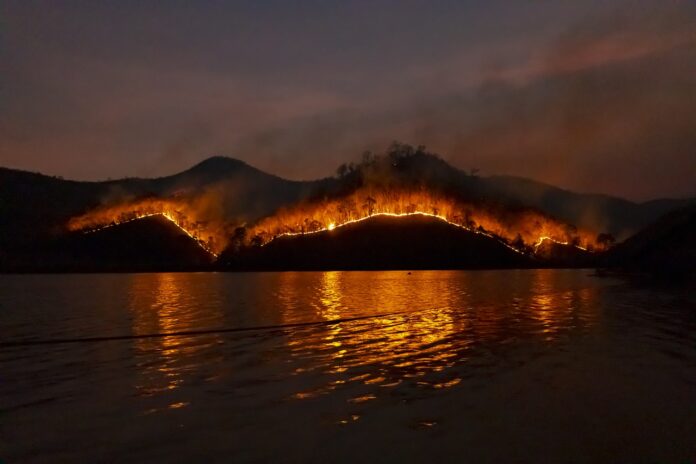Source: MakeLemonade.nz
Otautahi – The latest IPCC global climate change report is a reality check for the world, but it says it is too late to avert dangerous climate change.
IPPC, the Intergovernmental Panel on Climate Change, is the United Nations body for assessing the science related to climate change. The report says it is too late to undo the damage that’s been done to the planet.
IPCC scientists now have a much clearer picture of the past, present and future climate, which is essential for understanding where the world is headed, what can be done, and how to prepare for more fires, more flooding and sea level rise.
The blistering UN report says some parts of climate change, such as warming oceans and rising sea levels, are irreversible for centuries to millennia.
It provides the strongest case yet for human-caused global warming, saying it’s unequivocal that human influence has warmed the atmosphere, ocean and land.
Many characteristics of climate change directly depend on the level of global warming, but what people experience is often very different to the global average. For example, warming over land is larger than the global average, and it is more than twice as high in the Arctic.
The report projects that in the coming decades climate changes will increase in all regions. For every 1.5°C of global warming, there will be increasing heat waves, longer warm seasons and shorter cold seasons.
At 2°C of global warming, heat extremes would more often reach critical tolerance thresholds for agriculture and health, the report shows.
But it is not just about temperature. Climate change is upending how the world has been for centuries with changes including to wetness and dryness, winds, snow and ice, coastal areas and oceans.
Climate change is intensifying the water cycle. This brings more intense rainfall and associated flooding, as well as more intense drought in many regions.
Climate change is affecting rainfall patterns. In high latitudes, precipitation is likely to increase, while it is projected to decrease over large parts of the subtropics. Changes to monsoon precipitation are expected, which will vary by region.
Coastal areas will see continued sea level rise throughout the 21st century, contributing to more frequent and severe coastal flooding in low-lying areas and coastal erosion. Extreme sea level events that previously occurred once in 100 years could happen every year by the end of this century.
Further warming will amplify permafrost thawing, and the loss of seasonal snow cover, melting of glaciers and ice sheets, and loss of summer Arctic Sea ice.
Changes to the ocean, including warming, more frequent marine heatwaves, ocean acidification, and reduced oxygen levels have been clearly linked to human influence. These changes affect both ocean ecosystems and the people that rely on them, and they will continue throughout at least the rest of this century.
For cities, some aspects of climate change may be amplified, including heat (since urban areas are usually warmer than their surroundings), flooding from heavy precipitation events and sea level rise in coastal cities.
The report shows that human actions still have the potential to determine the future course of climate. The evidence is clear that carbon dioxide (CO2) is the main driver of climate change, even as other greenhouse gases and air pollutants also affect the climate.
Stabilising the climate will require strong, rapid, and sustained reductions in greenhouse gas emissions, and reaching net zero CO2 emissions. Limiting other greenhouse gases and air pollutants, especially methane, could have benefits both for health and the climate.
For further information contact Make Lemonade editor-in-chief Kip Brook on 0275 030188



